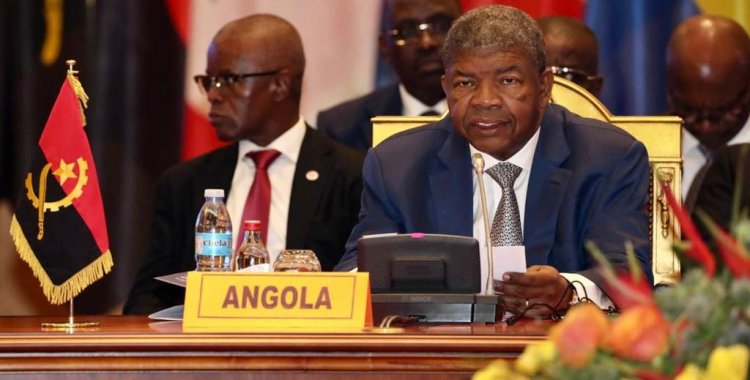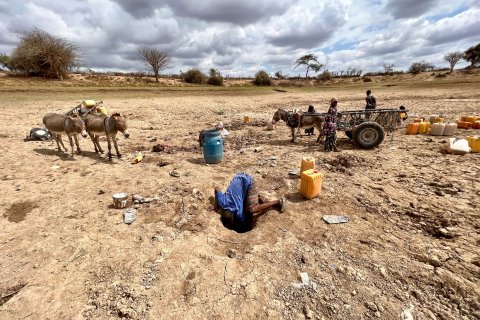João Lourenço, who was speaking at the opening of the summit that brings together various regional organizations from southern and central Africa, classified the meeting as unprecedented, praising the commitment of the African Union and the United Nations in focusing on the growing insecurity in the DRC.
"It is clear that all organizations present here are invested with the same mission, that of seeing the Great Lakes region free of conflicts that irremediably postpone national development plans and therefore compromise the much-desired agenda of regional and continental integration", he said.
He recalled that, for three decades, Angola "was the victim of an armed conflict", noting that he "understands, from lived experience, the horrors that the populations of the east of the DRCongo, a sister country with which we share a long border, know today".
The need for pacification in eastern DR Congo, where internal military tension persists with Rwanda, is the focus of this summit of heads of state and government of the four African regional blocs.
High-level representatives of the Southern African Development Community (SADC), the East African Community (EAC), the International Conference on the Great Lakes Region (ICRGL) and the Economic Community of Central African States (ECCAS ) participate in this summit in Luanda.
According to the President, it is in the logic of solidarity and within the framework of the mandate he received from the African Union that Angola has been carrying out a series of initiatives aimed at relaunching the bases of constructive dialogue between the DRC and Rwanda.
Angola's initiatives aim to "de-escalate the tension between these two sister and neighboring countries, as a result of the resurgence of the M23 (March 23 Movement) which, since the beginning of 2022, has triggered armed actions and occupied several locations in Congolese territory," he noted.
João Lourenço, also acting president of the CIRGL, said that it is also aimed at "stabilizing peace in the region and relations" between Kinshasa and Kigali that, within the scope of the CIRGL, "we facilitate dialogue between the parties".
The dialogue between the parties, he stressed, allowed the adoption of the "Luanda Roadmap on the Pacification Process in the East Region of the DRC".
Among the actions already carried out, the head of state highlighted the adoption of the "Joint Plan of Action for the Resolution of the Security Crisis in the East Region of the DRC".
Under which, he noted, it was agreed to settle the M23 elements in Congolese territory and start the repatriation of all refugees, as well as the process of Disarmament, Demobilization and Reinsertion (DDR).
Angola, as a mediating country, "undertook to deploy a contingent of the Angolan Armed Forces to guarantee the safety of the M23 elements in the cantonment centres", he stressed.
"There is a need to implement the decisions taken at the various summits with a view to guaranteeing the credibility and trust of the process", stressed João Lourenço, recalling that the Luanda Summit mandated periodic meetings between the heads of diplomacy of Angola, DRC, Rwanda and Burundi for the joint evaluation of the process.
In his speech, the head of state defended that the deliberations of this Quadripartite Summit seek to "privilege the reinforcement of the coordination of the comparative advantages that each one of the regional economic communities can offer in the process of pacification of the Great Lakes".
For João Lourenço, the coordinating role of the African Union (AU) and monitoring of the United Nations "is fundamental" and "can contribute to strengthening the principle of subsidiarity with a view to achieving the much-desired pacification of eastern DRC".
"We will thus be reinforcing the pillars of development and the socio-economic integration of our regions and guaranteeing the well-being of our populations and contributing to the effective materialization of the commitment to silence the guns in Africa", he concluded.







